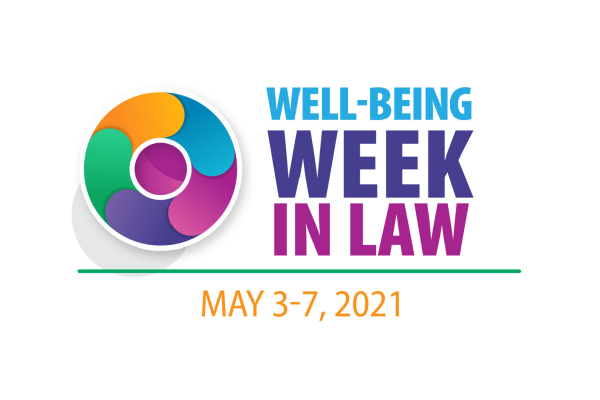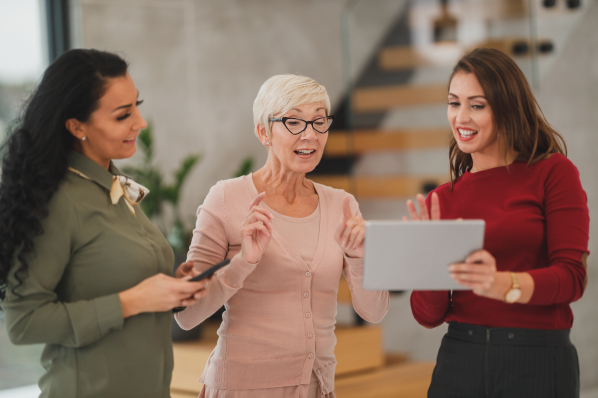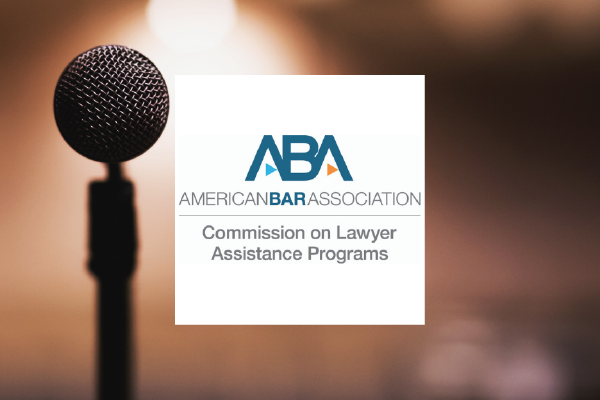Resources lawyers in Massachusetts need to cope and stay balanced during the COVID-19 Crisis.
Find updated restrictions on court operations in Massachusetts here.
Lawyers Concerned for Lawyers | Massachusetts LOMAP will be conducting business remotely at least until May 4th. Find more here, where we will communicate further updates as more information becomes available.
Find updates from the Massachusetts Department of Public Health here.
Free & Confidential Consultations:
Lawyers, law students, and judges in Massachusetts can discuss how to cope and other mental health concerns with a licensed therapist, and how to work remotely and other law practice management concerns with a law practice advisor. Find more on scheduling here.
STAYING BALANCED + COPING WITH ANXIETY
To have zero anxiety at a time like this — in the middle of the COVID-19 outbreak — would suggest a significant degree of denial. Lawyers and other professionals, including LCL’s staff clinicians, are currently in a position to function in their work and offer a reassuring presence to their clients, while at the same time taking care of themselves and acknowledging their own anxiety.
Any situation involving uncertainty and unfamiliar territory naturally elicits fear and anxiety – we’ve evolved that way because it serves a survival function. A moderate level of anxiety can elicit a state of greater alertness and readiness to maneuver, while a high level can be immobilizing. In the current circumstance, we have two concerns: (1) our health and that of those we care about; and (2) our financial safety, with regard to impact on work and income, not to mention retirement funds.
We don’t want to pretend everything is fine and ignore precautionary steps, and we also don’t want to panic or stir up an undue degree of fear in our clients, family, and friends. Two of the best-known concepts in 12-step programs — which were around long before programs — are very useful to our emotional infrastructure in any overwhelming circumstances:
- THE SERENITY PRAYER is a cognitive tool as much as it is a prayer. It reminds us to accept what we cannot change, since there is no other option and worry itself doesn’t accomplish much, and also to recognize what’s within our power. In the case of this virus, you’ve likely heard most of what’s in your power – avoiding crowds, keeping a certain physical distance from others, washing your hands a lot, trying not to touch your face — good luck on that one. Find Expert Tips on COVID-19 Best Practices here.
- ONE DAY AT A TIME is really the only manageable way to get through a crisis situation. That doesn’t mean we don’t look ahead and make plans (I am actually in the position of canceling a cruise booked for May), but that we get through one day and then the next, because attempting to somehow cope with all the tasks and emotions we’ll experience throughout the situation upfront is impossible.
Other coping popular recommendations include to:
- Limit time spent exposing yourself to the news. A couple of times a day will keep you sufficiently informed, and especially now, the news is 90% Corona concerns to worry about. And avoid unreliable sources — what you hear from the CDC and on local network news is probably worth listening to. Immersing yourself in this stuff all day can create the sensation that awfulness is the only thing happening, and it isn’t.
- Pay attention to your mind and body. Maintain a practice of relaxation, calm breathing, and/or meditation. Brown’s Mindfulness Center is offering free daily mindfulness sessions online to help during this time. Brown University’s Mindfulness Center has opened free recordings of guided mindfulness sessions here. Find a 3-step Mindful Check from Brown here. And find more on Mindfulness Essentials for Lawyers and Law Students here. It’s still a good idea for your mental health to get exercise, the outdoors are often helpful for the mind — and plenty of yoga and home workouts are available for free on YouTube and other platforms.
- Find ways to get an enjoyable respite from worry. Consider talking with loved ones, humor, reading, journaling, streaming entertainment, learning a new skill or hobby, taking an online course, etc. Find Self-Care Tips for Lawyers and Law Students here, and then consider Rethinking Our Self-Care During the Pandemic. And finally, find resources from the Indiana JLAP for everything from video games to virtual museum tours, ways to find free yoga, and more.
- Maintain your daily sustaining rituals that don’t incur risk. Again, safe options include meditation and prayer, connecting with friends, mealtimes, taking a walk, and doing your job in a regular way to the extent that you can. Keeping the same kind of schedule as you would in the office can help when working from home.
- Remember that, although this crisis is new to us and generates much uncertainty, we have the power to cope. We’ve faced other alarming disruptions – epidemics, 9/11, etc. – some of us are old enough to remember the gasoline shortage of the early 1970s, and we got through them. Each time, we learned a lot and expanded our capacity to cope.
NEW GROUPS!
For support throughout this difficult time, we’ve added Free & Confidential weekly online support groups for the Massachusetts legal profession. Find all our Free & Confidential Groups here.
LCL MA Open Connection for Lawyers and Judges. Meeting via Zoom on Mondays at 11am through June at least. Find more here.
Law Student Support Group. Meeting via Zoom on Mondays at 2pm through June at least. Find more here.
And — NEW WEEKLY ADHD Support Group Meetings. Meeting via Zoom on Wednesdays at 9am through June at least. Find more here.
MORE MENTAL HEALTH
ABA COLAP has centralized resources for mental health maintenance during the COVID-19 pandemic here. You can find resources on anxiety, panic, social distancing, staying mentally healthy, law practice management and leadership, stress, substance use resources, and more. For more resources on what is within your power to control (one day at a time — not all at once), find an extensive COVID-19 Resource Site here from the HNBA and VIA that outlines what you can do to stay on top of wellness, work-life balance, and legal news and education.
Find Mental Health Tips for Working Remotely here from Rocket Matter’s Legal Productivity Blog, covering isolation, stress, and more.
A Harvard Business Review article suggests “That Discomfort You’re Feeling is Grief”.
Financial stress can be particularly difficult to control. Find more here on relief resources during COVID-19.
Law students dealing with a postponed bar exam and beginning careers in unsettling, uncertain times can find more on coping here.
Domestic violence is surging during the advisories to stay at home. Those experiencing it directly and those experiencing vicarious trauma can find guidance here.
Likewise for those who struggle with mental illness, the outbreak can be even more difficult. National Association for Mental Illness online support groups can be found here. Depression and Bipolar Support Alliance has online support meetings here.
Our organization has transitioned to online meetings for our all our Free & Confidential Groups, including meetings for Addiction Recovery Peer Support Meetings across Massachusetts. Find 17 Tips to Stay Sober When Stuck at Home During the COVID-19 Outbreak published by The Temper. And while not exclusively for lawyers, law students, and judges — you can find 12 Online Recovery Meetings suggested by The Temper here. Additional online recovery meetings that are not exclusive to lawyers, law students include AA, AlAnon, IDAA, and NA.
For Suicide/Crisis: Free, confidential 24/7 support for people in distress, prevention and crisis resources for oneself and others is available through the Suicide Prevention Lifeline: 1-800-273-TALK.
WORKING REMOTELY
Most lawyers and law students will need to prepare for remote work and other changes. Find more on COVID-19 Pandemic and Remote Work Resources for Lawyers on our Mass LOMAP Blog.
Again — lawyers, law students, and judges in Massachusetts can schedule a Free & Confidential online appointment with one of our licensed clinicians or law practice advisors. Find more on scheduling here.
. . .
This post was written by Jeff Fortgang, PhD.




